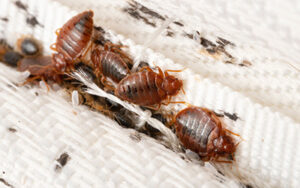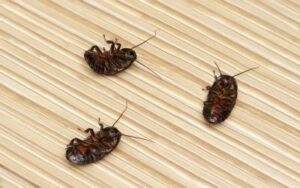How Do You Check for Bed Bugs at Your Vacation Rental or Hotel?
When you’re caught up in the excitement of a vacation, bed bugs are probably the last thing on your mind. However, these tiny pests are notorious for hiding out in
Gentle Strategies For Humane Gopher Removal and Management
For homeowners in Albuquerque, NM who take pride in their lush green lawns and vibrant gardens, the presence of gophers can quickly turn from a minor annoyance into a major
How Do You Protect Your Dogs from Ticks?
Ticks are a pest that no dog owner ever wants to deal with. These pesky little hitchhikers love to latch onto our furry friends, potentially spreading diseases and causing life-long
Wasp-free Wheels: How to Keep Your Car Sting-Free
Imagine cruising through Albuquerque, basking in the sun, and enjoying the scenic drive. Suddenly, you hear a buzzing sound and spot a wasp zipping around inside your car. Talk about
Avoiding Roaches in the Spring: Tips for Homeowners
Spring is the season of rebirth and rejuvenation. This time of year is also when pests like cockroaches become more active. Cockroaches are a prevalent nuisance in many houses and
Early Signs of Bed Bug Infestation
The warm weather of New Mexico makes it a haven for insects year-round. While there are steps you can take to stop pests from taking over outside your home, preventing






